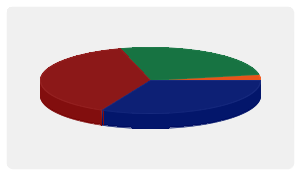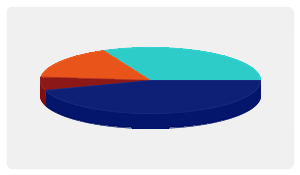Optimizing Shared Service Performance through the Use of a Continuous Improvement Program
Description:
The topic of Continuous Improvement remains as one of the most popular in the world of Shared Services, and for good reason. The positive performance results companies have experienced over the past few years have been nothing less than impressive and the positive impact that Continuous Improvement has on the Shared Services culture at many companies has been significant.
During this Peercast, our feature company will share how they approached the deployment of a Continuous Improvement program and what benefits and challenges they experienced in doing so.
Peercast Poll Results
Poll Title: Cultivating a Continuous Improvement Mindset Within Shared Services
Background: While many companies realize significant savings when first transitioning to Shared Services, uncovering additional savings opportunities can be a challenge without the proper focus. One attribute of many successful Shared Services operations is a well-established continuous improvement program that is ingrained into the culture of the operation. This poll looks at how companies have implemented continuous improvement in Shared Services and if employees are recognized for their efforts in improving operational performance.
Poll Question: Statement that best describes the most prevalent type of continuous improvement program in your Shared Services organization?
| Structured program based primarily upon a formal quality methodology such as Six Sigma or TQM | 32% | |
| Structured program developed internally somewhat based on common quality principles | 38% | |
| Informal program in which employees are encouraged to improve processes | 26% | |
| Other (Please comment) | 3% | |
| No continuous improvement program currently being utilized | 0% | |
| Not Applicable |
Poll Question: Status of utilizing a rewards/recognition program related to continuous improvement in your company's Shared Services organization?
| Implemented | 43% | |
| Approved, not yet implemented | 7% | |
| Approved, implementation not successful | 0% | |
| Currently evaluating | 17% | |
| Evaluated and denied | 0% | |
| Not Evaluated | 33% | |
| Not Applicable |

